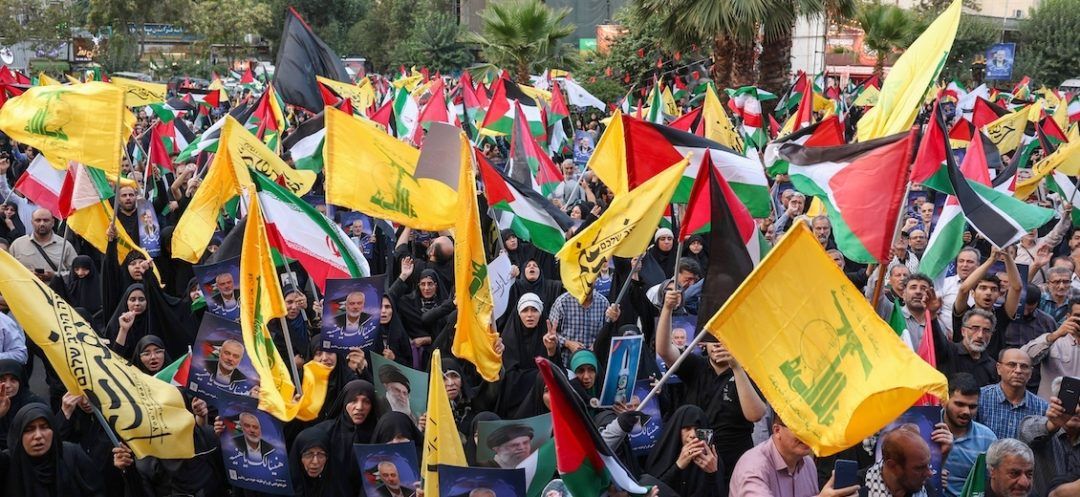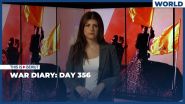- Home
- War in the Middle East
- Un Security Council Fears Escalation in the Middle East

©(AFP)
Many members of the UN Security Council expressed concern on Wednesday about the risk of escalation in the Middle East, citing a critical situation following the death in Tehran of the leader of Hamas in a strike blamed on Israel.
A few hours after the death of Ismail Haniyeh, leader of the Palestinian movement, the Council held an emergency meeting at the request of Iran, supported by Russia, China and Algeria.
The Council “must take immediate steps to hold Israel accountable for this act of aggression, including consideration of sanctions and other necessary measures to prevent further violations and to demonstrate that Israel's malicious activities will not be tolerated by the international community”, said Iranian ambassador Amir Saeid Iravani, reaffirming Iran's right to “self-defense”.
Several Council members, including China, Russia and Algeria, directly condemned the assassination.
“Israel has embarked on a policy of bloodshed and scorched earth, leaving destruction in its wake, an endless wave of violence engulfing Gaza, the West Bank, Yemen, Lebanon and now the Islamic Republic of Iran. Where will this madness end?” said the Algerian ambassador, accusing Israel of ‘sabotaging’ Middle East peace efforts.
But most member states simply expressed their fears of escalating conflict in the region, with war already raging in Gaza between Israel and Hamas.
“We fear that the region is on the brink of all-out war”, said Japanese Deputy Ambassador Shino Mitsuko, while Slovenia described a region ‘in the eye of the storm’.
“We call for the utmost responsibility and restraint in order to avoid a regional conflagration”, pleaded French Deputy Ambassador Nathalie Broadhurst.
Prior to the meeting, UN Secretary-General Antonio Guterres, through his spokesman, expressed his alarm at the attacks on Teheran and Beirut, where Israel targeted a Lebanese Hezbollah official, which “represent a dangerous escalation”.
“The international community must work together urgently to prevent any action that could push the entire Middle East into a vacuum, with devastating impact on civilians,” he added.
“It would be best not to speculate on the impact of recent events on peace and security in the Middle East, a wider war is neither imminent nor inevitable,” tempered Deputy US Ambassador Robert Wood to the Council, reiterating the right of Israel, a US ally, to defend itself.
“We will continue to act to defend all the Israeli people,” promised his Israeli counterpart Jonathan Miller. But “Hezbollah, Hamas and the Houthis are only able to spit venom from the head of the snake”, he added, taking direct aim at the support of Iran, “number one sponsor of terrorism”, to these movements in Lebanon, Gaza and Yemen respectively.
With AFP
A few hours after the death of Ismail Haniyeh, leader of the Palestinian movement, the Council held an emergency meeting at the request of Iran, supported by Russia, China and Algeria.
The Council “must take immediate steps to hold Israel accountable for this act of aggression, including consideration of sanctions and other necessary measures to prevent further violations and to demonstrate that Israel's malicious activities will not be tolerated by the international community”, said Iranian ambassador Amir Saeid Iravani, reaffirming Iran's right to “self-defense”.
Several Council members, including China, Russia and Algeria, directly condemned the assassination.
“Israel has embarked on a policy of bloodshed and scorched earth, leaving destruction in its wake, an endless wave of violence engulfing Gaza, the West Bank, Yemen, Lebanon and now the Islamic Republic of Iran. Where will this madness end?” said the Algerian ambassador, accusing Israel of ‘sabotaging’ Middle East peace efforts.
But most member states simply expressed their fears of escalating conflict in the region, with war already raging in Gaza between Israel and Hamas.
“We fear that the region is on the brink of all-out war”, said Japanese Deputy Ambassador Shino Mitsuko, while Slovenia described a region ‘in the eye of the storm’.
“We call for the utmost responsibility and restraint in order to avoid a regional conflagration”, pleaded French Deputy Ambassador Nathalie Broadhurst.
Prior to the meeting, UN Secretary-General Antonio Guterres, through his spokesman, expressed his alarm at the attacks on Teheran and Beirut, where Israel targeted a Lebanese Hezbollah official, which “represent a dangerous escalation”.
“The international community must work together urgently to prevent any action that could push the entire Middle East into a vacuum, with devastating impact on civilians,” he added.
“It would be best not to speculate on the impact of recent events on peace and security in the Middle East, a wider war is neither imminent nor inevitable,” tempered Deputy US Ambassador Robert Wood to the Council, reiterating the right of Israel, a US ally, to defend itself.
“We will continue to act to defend all the Israeli people,” promised his Israeli counterpart Jonathan Miller. But “Hezbollah, Hamas and the Houthis are only able to spit venom from the head of the snake”, he added, taking direct aim at the support of Iran, “number one sponsor of terrorism”, to these movements in Lebanon, Gaza and Yemen respectively.
With AFP
Read more



Comments